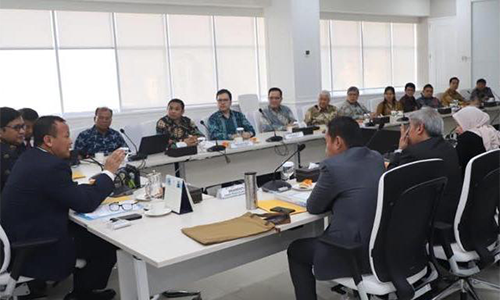About Us
Ornamental Fish International (OFI) is the peak international trade association representing the ornamental fish industry. OFI was founded in 1980 by a group of ornamental fish industry people looking to improve standards within the industry and provide a‘voice’ for the industry. One of the main aims that arose from the original meeting was a desire to improve industry standards which still remains a central part of our organisation today.
OFI includes members from 30 countries in the major ornamental fish exporting and importing nations. Our members maintain a high level of integrity and operate by the OFI Charter, they have also invested in the future of the ornamental fish industry by investing in being a member of OFI which represents the interests of the industry around the world. Our members are some of the largest and best traders in the industry, including ornamental fish importers and wholesalers, ornamental fish collectors, ornamental fish breeders, ornamental fish exporters, as well as retailers, consultants, manufacturers, publishers, plant specialists, freight forwarders, airlines, and exhibition companies – even a university department.
So what does OFI do?
OFI is a trade organization and works on behalf of its members. OFI represents and promotes the interests of the industry through lobbying to various institutions around the world; as well as educating industry and hobbyists in responsible and sustainable Best Practices. Last year, OFI members have adopted its new charter for the conduct of an ethical, fair and legal trade. This work falls into 2 broad categories:
The first is communications, we provide information and education to members on issues relevant to them through a range of methods; regular newsletters, member updates, educational book series, OFI Journal, as well as representing the ornamental fish industry at various meetings, conferences and tradeshows around the world.
The other key area we work on is representing the interests of the ornamental fish industry. OFI attends meetings with various government officials around the world to discuss issues regarding our industry.
Some of the key challenges the ornamental fish industry faces are:
CITES: Since 2000, OFI has been a regular and active participant/lobbyist at all CITES Conferences of the Parties and in most Animals Committee meetings, actively promoting sustainable harvest and relevant conservation and trade regulation measures. Without the input of OFI, trade in live rock, corals, seahorses, and numerable other reef animals, as well as in freshwater stingrays and Asian Arowanas could have been a lot more complicated today, or even lost to the trade altogether.
OFI sees sustainable harvest of wildlife as a positive incentive for conservation, and a valuable opportunity for livelihoods. OFI support a sustainable wildlife trade and reasonable trade control where this is called for, but also fight against irrelevant and misguided trade bans.
Invasive Alien Species: There is a lot of discussion about Invasive Alien Species (IAS) in many jurisdictions around the world and legislation for this will continue to impact our industry and the species that we deal with. Some species of ornamental fish are proven to be invasive and as a responsible organization OFI encourages everyone to deal with invasive species appropriately and follow local regulations. However, often regulations are impractical or unwarranted – so it is important for the industry to have an organization like OFI to provide a voice for the industry.
Animal Welfare: Is another hot topic we are dealing with is animal welfare which can cover a huge range of issues from how we hold fish (types of aquariums, stocking densities, types of fish we sell) to how they are transported. OFI supports good animal welfare practices which should be applied at all levels of the industry. However, often regulations evolve from other sectors that when applied to fish do not make sense. For example, new proposed EU regulation limits transport of any animals (including FISH) to a maximum of 8 hrs – with the majority of fish sold in the EU being imported from Asia with a transit time of 12 hours or more this has the potential to be impacted, as well as transport by road within the EU.
Biosecurity: With the large numbers of fish traded internationally there is a chance of transferring disease from one country to another, as well as spreading zoonotic disease (from animals or fish to humans). Already we see a lot of biosecurity regulation around this such as Health certificates for exports and the ban of importing of some species from some countries. Governments around the world are looking at the issue of biosecurity and it is likely that new regulations will continue to be developed that will impact the international trade in ornamental fish.





